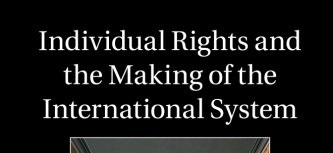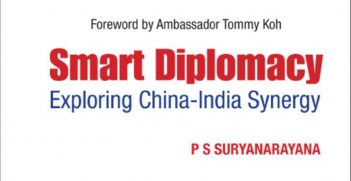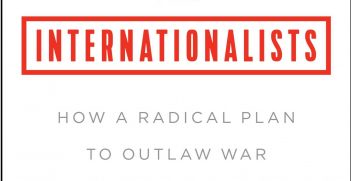Individual Rights and the Making of the International System

How did we end up with a world divided, in political terms, into 200 sovereign states? This is a major question in International Relations and yet one for which, for the most part, we have only a few, incomplete and unsatisfactory answers.
Individual Rights and the Making of the International System takes up the challenge of providing a better one. It argues that over the past four hundred years, struggles for international rights have been a crucial factor, if not always the only one, that led to the emergence of new sovereign states.
This argument stands in stark relief to the established accounts, which argue geopolitical competition, structural change in the global economy, the gradual incorporation of subject peoples into a state-based society, or socialisation into new norms of behaviour generated an homogenous international system of states. These realist, world-system theorist, English school and constructivist accounts are all weighed by Christian Reus-Smit, and found wanting.
Instead, he proposes that the struggles for the recognition of the individual rights of subject peoples undermined the legitimacy of successive empires, and when imperial administrations failed adequately to respond, those peoples turned to sovereign states as the best means of realising those rights.
To demonstrate his argument, he explores the Westphalian settlement, which created a series of new states in central Europe, the emancipation of Spain’s Latin American colonies, and the decolonisation of the African and Asian empires after 1945. The first entailed a recognition of a new kind of rights order, generated by Reformation theology, in which, as Reus-Smit puts it, ‘rights attached to persons as integral moral agents’ rather than to points in a social and political hierarchy. The second saw the emergence of a postcolonial order shaped by new understandings of political representation, about who should be represented, how and where. And the third involved the mobilization of liberal rights in the pursuit of imperial reform, initially, and then national self-determination. In all three cases, struggles over rights did not cause the dissolution of empire, but they helped determine the political outcomes.
This is an ambitious and thoughtful book. It draws upon both English school and constructivist thinking, but threatens to up-end both of them. The English school has traditionally conceived of the society of states and the ‘world society’ of individuals as distinct and sometimes in conflict, because it worries that human rights claims might undermine the order sustained by international society. Reus-Smit suggests that the English school should not be so concerned; that struggles for human rights have long been part of the evolution of international society, rather than a ‘subversive’ new force only recently emerged. But in so doing, Reus-Smit erodes the distinction between international and world society, and brings the whole concept of a ‘society of states’ into question – potentially a much greater challenge to English school thinking. No wonder he prefers ‘international system’ as his term of choice.
Individual Rights also poses problems for constructivists, especially for the normative agenda implicit in their work. ‘Anarchy’ might what ‘states make of it’, as Alexander Wendt famously put it, but it seems that anarchy might also be what people want. If that’s correct, then anarchy is here to stay, albeit as states, international law and institutions change to accommodate, and perhaps even to better recognize and uphold, the changing rights of both states and individuals.
Christian Reus-Smit, Individual Rights and the Making of the International System (Cambridge: Cambridge University Press, 2013).
Reviewed by Professor Ian Hall, Griffith University, Brisbane.





